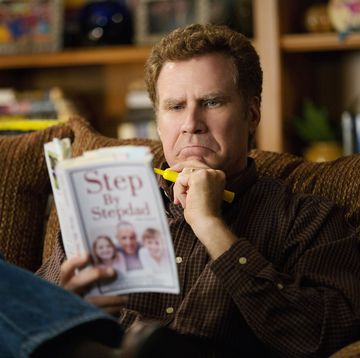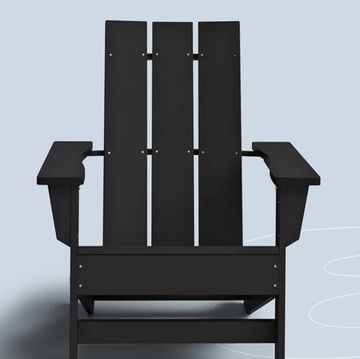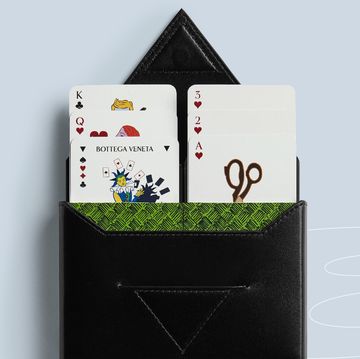REPROBATE
My father did a lot of shift work at the plant, on his feet, got heavy and angry, and enjoyed life to the smallest extent possible. He took pleasure from neither the ridiculous nor the sublime, and in fact never once had to consider what sublime might have meant. Sublime was definitely not one of J. D. Warren's words. Reprobate, now, that was one of my father's words. He had six children he didn't much care to know, was without hobbies, passions, or pastimes, and had a job making plastic that found him answering to people who were softer and dumber than him—reprobates, all of them.
So he took his joy where he could find it, and in small doses, usually at 3:00 A.M., as his offspring slept and couldn't bother him. But since enjoyment of things was counter to my father's natural state of being, his stabs at pleasure didn't really ever work out for him. For instance, there's my father now, sitting on the couch in the living room, 3:00 A.M., stark naked, glass shattered everywhere. Glass covered the couch, glass spilling onto the floor. Son of a bitch! my father bellowed from deep in his belly, which is what he did. Lean and handsome when he was young, he'd gotten fat and intimidating by the time I came along. He had big steely paws and a belt like a bullwhip. He'd hit you in the back and you'd feel it clear through to the front. High-and-tight, black horn-rims, gritted teeth. It took nothing to set him off, and you did not want to tangle with that. And now he had an ass full of glass.
My parents had an oval coffee table that had an oval glass top that had been chipped, and so Dad ordered a new piece cut, and it had come in that day. For some reason, it hadn't been placed on the table but on the couch, and so when he'd gotten home from a long shift, double overtime, and had decided to relax on the couch with my brother's Playboy, he'd plopped himself down on this big sheet of glass, which had gone into a million pieces under his weight, which is exactly how glass is supposed to behave. But not to my father. Not much living happened in our living room, and we generally weren't allowed or trusted in there, but word got around on the underground channel that some shit had gone down on the living-room couch the night before, right smack next to the shrine to the Virgin Mary, and we all had a chance to swing by and survey the devastation, as not a shard had been cleaned up, the crime scene had been preserved well into the morning of the next day. I was nine years old and couldn't picture what Dad could have possibly been doing in there the night before, but seeing the debris field up close I thought that it was a miracle that there wasn't blood everywhere mixed with the glass. I was at the time an unbearably pious altar boy and decided that the Virgin must have interceded to keep Dad alive. The scene wasn't made absolutely hilarious, though, until Daddy issued the official line on the incident. "Defective glass," he pronounced that day. "Reprobates," he added for good measure.
In Russia, Leonid Brezhnev was calling up down and black white, and in Highlands, Texas, the tyrant of South Sixth Street was calling glass that couldn't stand the full weight of his fat ass "defective."
So it was that defective took its place as one of Dad's classic words, among other imperious pronouncements that had the weight of law and something much heavier than even that—existential condemnation for the Warren boys. But in this way, my brothers and I learned many interesting words and a great many useful concepts, a glossary through which to understand the funny world. A handbook for when we ourselves would become fathers.
Reprobate was my first complex word, and it had a wholly alien sound. I have known the word from my first memory, and in my mind it is the word I most closely associate with my father, and it may be the first sound I remember him making. It is an unbeautiful sound, as if it meant only to do harm. In that, it was the perfect signature for my father. It was his portal on the world, his shield, his armor, his worldview. And it became my worldview, too. Its first known use was in the fifteenth century, according to Merriam-Webster. What Merriam-Webster doesn't say is that my father has spoken the word more than any other human since then. Because the world is lousy with reprobates, and it was his fatherly duty to give us the eyes to see, and the words to speak.
There was old Mr. Lambright, who owned an asphalt truck and drove around town paving and repairing driveways. He came by our house one day when I was about ten, having been commissioned by my dad to replace the old shell driveway we'd always had with a fancy new blacktop. Look at this fancy new blacktop, I thought to myself when I came home from school that day. You might say it was a little discordant with my family's self-image, as if we all knew goddamn well that underneath this smooth perfect new skin remained our true selves. My father immediately began to complain about it, such was his discomfort with the fancy blacktop and the message it must be sending—constantly—to the world. Nonetheless, we would glide silently from the road to the garage without so much as a pop or a crack or a shell splitting under the tires, just like rich people.
Then a few months into our life with pavement, there came a heavy rain, one of the soaking rains of southeast Texas that last for forty days. And when the sun finally came out again, we all blinked outside to discover that the fancy blacktop had buckled under the deluge, and right there in the middle was a big depression that now and forever would hold a lake. From that day forward, the asphalt would be broken and uneven. Well, God's own driveway couldn't have withstood that monsoon, we kids reasoned. Lambright could fix it for us. But we learned early in life that it's not a no-fault world. Someone is always to blame. J. D. Warren sternly corrected us: Old Mr. Lambright was a goddamn reprobate. A weaker man would have just gotten a new blacktop. But our driveway would remain unrepaired, a withering and eternal testament to Lambright's evil incompetence. Take that, world. Not that anybody ever noticed—this kind of retribution is like drinking poison and waiting for the other guy to die. But that didn't stop us boys from deploying the same lesson in our own little orbits. When I went to school, there in my class was little Lambright, and I finally had a word to call him, too.
THE TAJ MAHAL
Of course, my father numbered his boys among the reprobates and never missed an opportunity to let us know it. He resented that we just assumed that we'd have stuff, like food and clothes. In the great ledger of material things, my family didn't merit a mention. We had little to speak of, and as the youngest I got everything we did have last. It was just life and nobody complained. But compared with some of the boys I went to school with, we were absolutely prosperous. In my town, you showed yourself to be truly poor by showing up at school barefoot. And there were so many kids without shoes that we really didn't think much of it. I remember one kid from my street vividly. Aiken was a fully muscled man at ten. Aiken was weathered at ten—steel-calloused hands, deep-set, weary eyes—looked like he punched a clock as a longshoreman just in time to make it to Mrs. Norris's fifth-grade class every morning. Aiken had no shoes, and he wore the same clothes every day of the week. You'd see his mama out in the yard doing the wash on Sunday, and they'd start out clean on Monday, and by Friday they'd have fresh holes and be pretty ripe. But Aiken walked through the world unfazed by this, and even though we didn't have a pot to piss in, either, I felt sorry for him all the same. In Aiken's grim acceptance of the world and its privations, my father saw a lesson for me. When my brothers and I asked for extravagances, like shoes, Daddy would say, "You girls better marry rich wives, you've got expensive tastes." Now, you're probably saying to yourself, surely this was meant affectionately! A little ribbing, to make men of us. But just to make sure that we knew he wasn't joking in the slightest, he'd quickly add: "You'll never amount to anything."
That was the line that came at us in a steady bombardment for the duration of life with father. But I was a kid, and I had no conception of what life was, much less what I was supposed to amount to. I looked around my town and nothing sounded about right. I made my peace with it. That's when I really began to listen and learn. So when he'd come at me with "I could give you the Taj Mahal on a silver platter and you'd back up and shit on it," my first thought wasn't "Man, that's incredibly harsh." It was "What's the Taj Mahal?"
SWORNIN' TO GOODNESS
Daddy was at such cross purposes with the world that he came back from fighting the Nazis with antipathy for the English and warm reminiscences of the Germans, and speaking auf Deutsch. Mach schnell! he would bark at us. Kommen Sie hier! German is such a warm language when hollered at children in this way. Was it the war that did this to Daddy?
My father had these terribly misshapen feet, and he was cursed to work standing up his whole life. He never once found comfortable shoes, and when he'd come home from the plant after a double overtime, the searing pain in his feet would have him whimpering like a child. Swornin' to goodness! was his pain expression. Was it his horrible feet?
His maniacal mother, my grandmother, Letha (we called her "Lethal"), taught him that "if it isn't perfect, it's not worth doing," thus paralyzing my father for life. It was she who dragged my father, aged eight, to a hotel in downtown Baton Rouge, busted into a room, and showed him his father in bed with another woman. "Look at your father," she said. Was it Lethal?
Or are unhappy people born unhappy?
Would he have been the way he was if he had never had children? Did I turn my father into a monster?
From early on, I was aware of the hostage situation that prevailed at our house. I thought to myself: Who is the angry man who lives here, and why does he hate me so much? But unlike in a typical hostage situation, our captor would leave for long stretches—guy really worked his balls off—only to swoop back onto the premises and pitilessly reassert his mercurial will and crushing authority. Before I started school, my mother would sit me down in the afternoon and talk to me just before he came home, preparing. "You know how Daddy gets," she would say, giving me useful strategies to deal with the hulking child about to walk through the door, as if I were the rational adult.
It wasn't all bad. It occurs to me now that life under occupation tends to heighten everything, makes everything funnier, makes everything taste better, makes you appreciate your allies and enjoy kindnesses more than you might in the normal world.
And all the while, the words kept coming, howling words of rebuke and pain to convey the epic size—the iceberg, the Vesuvius, the continent, the constellation—of Daddy's unhappiness.
DETERIORATED
I first heard it not from either of my parents but from a stranger, pounding on the front door one afternoon when I was about five. My brothers were at school and my mother was out back hanging clothes on the line when I heard a commotion, opened the door, and a woman fell into our living room. Her face was red and wet, she looked terrified, and she terrified me. "Mrs. Warren, come quick, mah sistah's deteriorated!" De-terria-rated. Another chunk of a word I would never forget. The hysterical woman luxuriated in it, drawing it out, not meaning to at all. She was meaning to be understood, and in this case, deteriorated was the perfect word.
The woman's father, Danek was his name, lived next door with her sister, Lillie Mae. The woman and the old man were bitterly estranged. For years, she and her husband and kids had been prevented from seeing her sister, who had muscular dystrophy and was bedridden. I had never actually seen Lillie Mae. Danek's house was a dump and his yard was a mess—the weeds would sometimes reach my dad's waist. The old man drove an old green '46 Chevy truck, and he always had tobacco juice on his chin and down his overalls. We'd see him out in the yard every so often, and my father would walk over and say hello, and ask after Lillie Mae. I'd tag along and listen and study their faces, especially my father's. It was funny, but the farther he got from our house, the taller he seemed to stand, and the softer and kinder his face seemed to get, as if he were relieved to be furloughed from his cell for a spell. And side-by-side to old man Danek, he was Atticus Finch. "How's Lillie Mae doing?" my father would ask him. "You let me know if I can drive your baby to Houston to see the doctor."
Over time, it would come to my brothers and me that Dad was just nicer to other people, in that he was nice to them. He became a different person altogether—we would see it and marvel. Once I got a little older, people at church would talk to me about "your sweet daddy" and "sweet Mr. Warren." This made my brothers and me—for whom he had specially reserved only the hardest parts of his heart—feel as if we might be insane. And out of either embarrassment or fear, we would cover for him and suppress his bad behavior from the public. For some reason, his exposure would be our humiliation. In my teens and twenties I had a girlfriend for six years, and she only ever knew my dad as the sweetest man she'd ever met. In front of her, he would be gregarious and affectionate, and on rare occasions he'd even make a show of what a softy he was by calling me the name he'd called me as a baby: Sugarfoot.
And so it was with old man Danek, or anybody who wasn't his blood.
On the day that his hysterical daughter came hollering for my mother, old man Danek was at the beer joint in town, where he was every day, regular as a job. "Stay here," my mother said to the woman as she bolted the front door and headed to Danek's house. I stood there, frozen, staring at the suffering human being on the couch. My mother made her way through the dingy rooms to find Lillie Mae, long dead, a mummy in her bed. Old man Danek had been sane enough to perform a redneck version of the ancient rite of pharaohs, covering her in alternating layers of lye and perfume. But he was all the same insane with grief when he was told that she was dead as he arrived home that evening to find his house ablaze with the flashing sheriff's lights summoned by my mother.
They took old man Danek away, and over the next several days his daughter's family came and dragged every last thing out of that house and burned it in a massive bonfire that went day and night. I sat on the glider behind our house and watched this purification ritual, crying like a baby. At one point, my father came and sat down beside me. As he watched, under his breath, he said, I'll deteriorate him.
With the fire reaching the sky, that word best described my feelings about this whole dirty globe. But the look on my dad's face as he said this made me feel good. For the moment, anyway, I felt safe. I didn't know that look much, but it was righteous. And for once, I was relieved that he and I could agree on a villain, and in this instance that villain didn't live under my father's roof.
WHORE
One night, thirty-five years later, I sat across the dining-room table from my father, in the old house. I'd flown home because the day before, my mother had called me, weeping, begging me to do something about Daddy. My mother didn't ever call weeping, never asked for help of any kind. By then, she was sixty years into a relationship with my father, and well, most life sentences are shorter. Daddy had been savaging her with his words. "You're lucky any of the boys still speak to you," she had told him many times. Well, I had come home to speak to him.
My father had had a stroke two years before, in 2003, and though he had been spared physically, he had been left with a profound aphasia. The speech center of his brain had exploded, most of his words had been destroyed, and the rest of his vocabulary had been scattered randomly around the gauzy interior of his skull. He would eventually regain command over some basic phrases, but for the last years of his life he would be left speaking a halting private language only he fully understood. Any complex or sophisticated concepts that formed in Daddy's brain from now on would remain locked there forever. If my brothers and I had secretly harbored any hope of a breakthrough with him—of working through unprocessed adolescent rage with a wiser, mellowed father—we could forget it. But that actually wasn't the worst of it. Just when you're certain that the potential for further harm has passed, you learn how wrong you can be.
A stroke can have the effect of exaggerating dominant character traits, and in my father's case it had multiplied his already prodigious paranoia tenfold. The world had always been a dark and foreboding place to Daddy, but now it closed in on him, and as he lashed out, my mother was his victim. From their earliest days together, he had been a jealous companion, even forcing her to quit jobs that might bring her into contact with men. Now he wouldn't let her out of his sight, and everywhere he looked, he saw my eighty-year-old mother having sex with somebody. At Mass, he saw her fucking an old family friend on the altar after communion. At home, he saw her having an assignation with the nice man who came to cut the yard. "Whore!" he bellowed at her at home as she waited on him hand and foot, as she always had. "Slut!"
We sat at the table, Dad and me. I could barely contain my anger. "Dad, Mom has told me what you've been saying to her. You know what I'm talking about, don't you? The names you've been calling her?"
I leaned across the table, my index finger in his face. "Old man, that's my mother you're talking about. You've never deserved her, and you will terrorize her no more. It's over. Do you hear me? You've done enough. Do you understand?"
My father's face was ashen, his breathing was ragged. He brought a hand to his mouth and slowly nodded his head. I thought he might die on the spot. But then a slow light reanimated his eyes, as if his justifications were returning, or as if the delusion that excited his remaining words was playing fresh in his mind. "But... I saw it... with my eyes!" he said.
LOVE
Would my father ever break form, ever have moments of acute awareness or joy, ever surprise everybody with his clarity and beneficence? There was one time. In 1994 my second-oldest brother, Craig, died of AIDS. My father had reserved special torments for Craig all his life, as he couldn't abide a sissy. But after Craig died, my parents became the gay-friendliest rednecks in all of Texas, and would even be sought by other country families whose boys had also come back home to die, for counsel and solace. J. D. Warren did that, and it shocked me to my shoes.
Then there was the end. Not long before my father died last year, he became a different man. I can't really explain it, and don't really want to, but for the first time in my life, my father looked on my brothers and me with the face that he had previously saved for strangers. Of course, it wouldn't be a proper death in my family if a fistfight hadn't broken out over my father's hospice bed.
Brother Kevin, who had rebelled most ardently against my father and so had begun the mysterious process of becoming like him, was enraged at our brother John and me when we refused to put a feeding tube in Dad after he stopped eating last fall. One evening Kevin charged into the room and began force-feeding dad, who begged him to stop. That's when the screaming started. As I stood between Kevin and John to keep them from killing each other, my father lay in his bed, pointing first at one, and then the other, over and over again. And for once in his life, my father's was the voice of love.
"Love!" he said with each point of his finger. "Love! Love! Love! Love! Love! Love!"
The next day, I saw him for the last time. As I stood by his bed, he looked up at me, and I didn't recognize his face. It was wide open, calm, his eyes were clear, searching my face. He took my hand to his mouth and kissed it over and over again, then looked up at me.
"I'm... so... sorry," he said. I couldn't speak. Instead, I leaned down and kissed him on the mouth. I straightened back up. He smiled. "Kiss me again," he said.
I had hated this man for most of my life, a hate probably not even he deserved. And I had loved him as much as a son can love a father. And I had pitied him, and scorned him for not knowing my exceptional brothers—James, Craig, Kevin, John, Christopher—for even a second, and for not once seeing me. But here, at the last, he saw everything.
This word came to me: forgive.
"I'm dying," he said, and smiled.
"I know," I said. "It's okay to die. It's time to rest, Dad."
For decades, it had been the work of my life to unlearn every word, every lesson, this man had taught me, my conscious and unconscious struggle to become not him. But his words were bred into me all the same. Now, here at the end, his words were teaching me something new.
I leaned in close, held his head in my hands, and whispered in his ear. "Thank you for today. Thank you for being my father."
We stayed there just like that, for a long time, and I kept whispering.
And as I spoke to him, my father said some new words. These are the words my father said.
Yes, son.
Yes, son.
Yes, son.
This article originally appeared in the June/July '12 issue.















